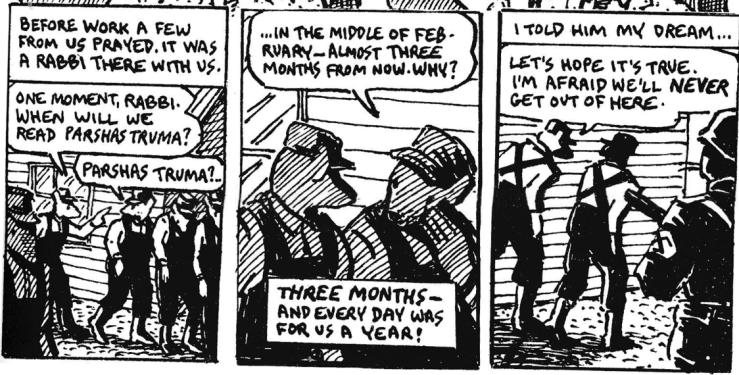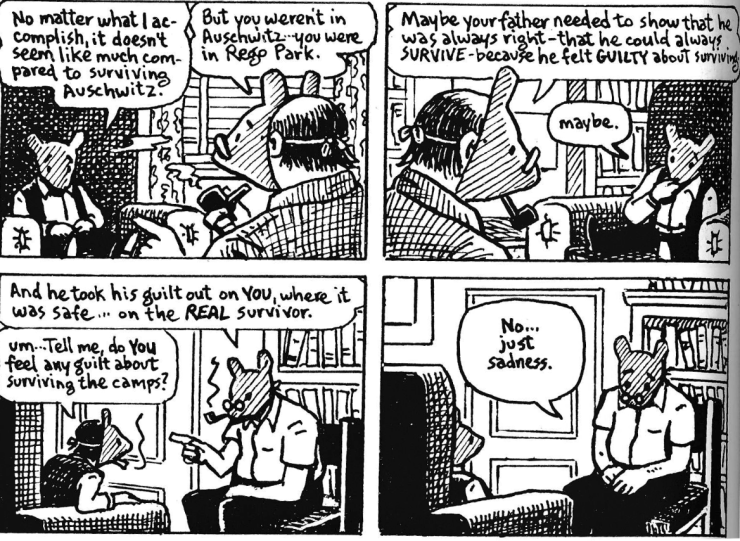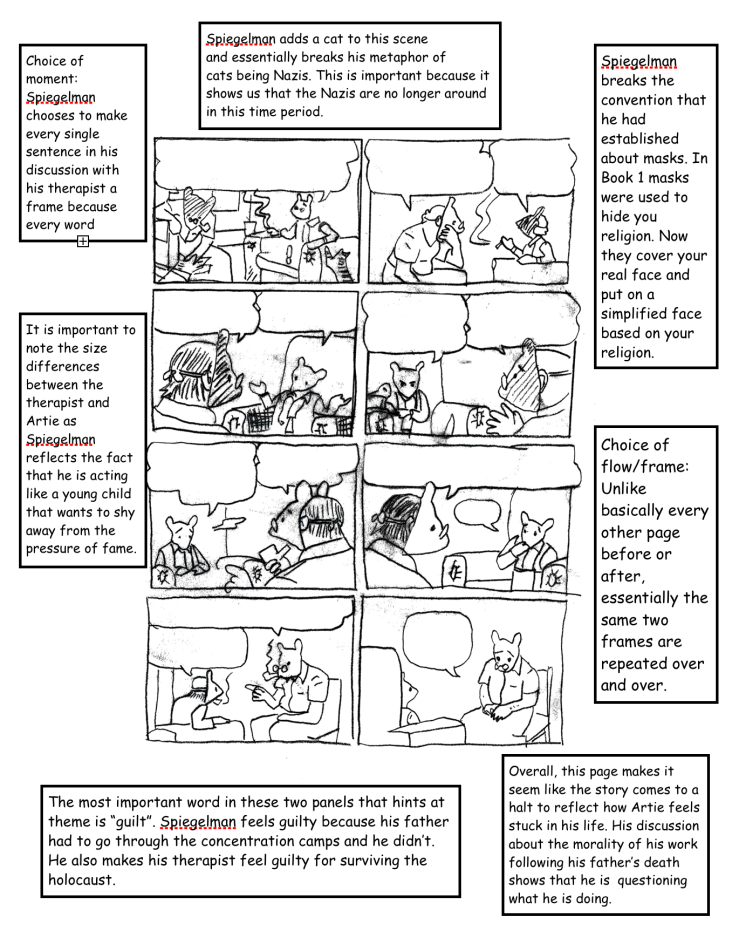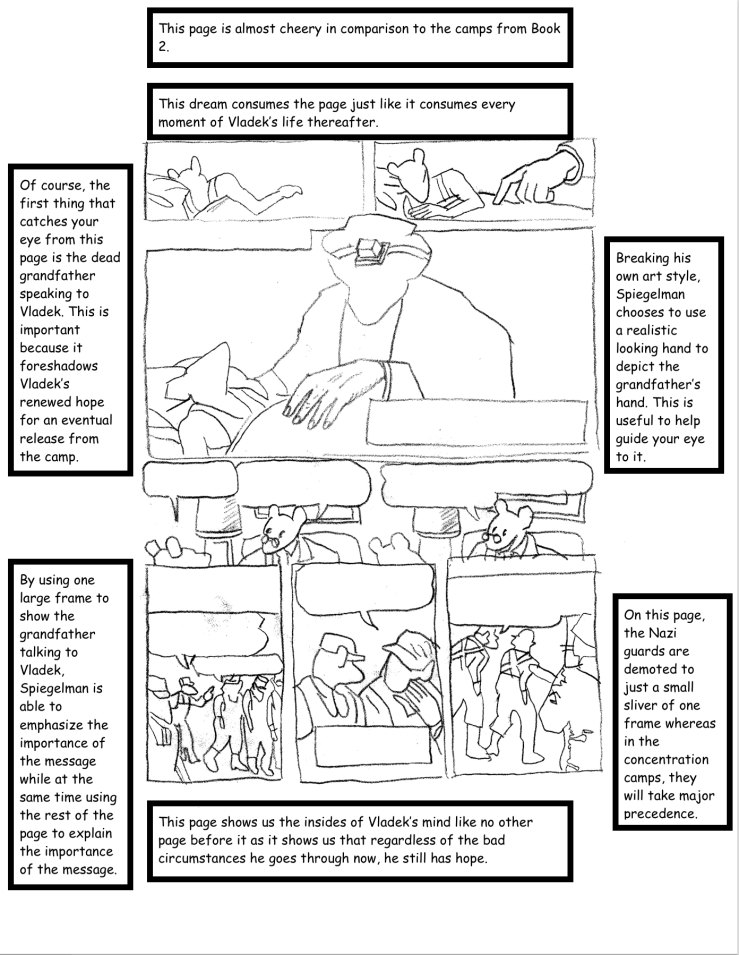The transition from book 1 of Maus to book 2 is marked by a significant shift in tone. In book 1 we are just introduced to the characters. Sure the circumstances in Vladek’s life are not the greatest, but they are nowhere near as bad as they get in book 2. In book 2, every fiber of Vladek’s strength is tested to its break point. To emphasize this shift in the narrative, Spiegelman changes the overall tone of the story from one of nostalgia for the past, slowly into a dread and sorrow over past events.
In the Parshas Trauma page, there is certainly room for hope, as Vladek receives a message from “beyond” telling him that everything will be okay, something which doesn’t happen ever again. This message helps keep the tone light as we now know that Vladek will not go through too much suffering right now. A divine being is taking care of Vladek so we as the audience know that nothing bad will happen right now. 
However, when we arrive at the second book, everything is different. From the onset we know that Vladek has divorced Mala. This clearly took a toll on Art’s mental health, which, eventually after the death of his father and the release of his book, led to him nearly having a breakdown. Even the regular storyline that was always so positive, showing how Art and his father were doing, now becomes a psychoanalysis of Art to try and figure out what is wrong with him. The scene with the therapist really shows Art’s emotional state (more on that in my next post), and it also shows how Art’s current view of the world can impact others as he directly causes the therapist to feel sad about the concentration camps as well. 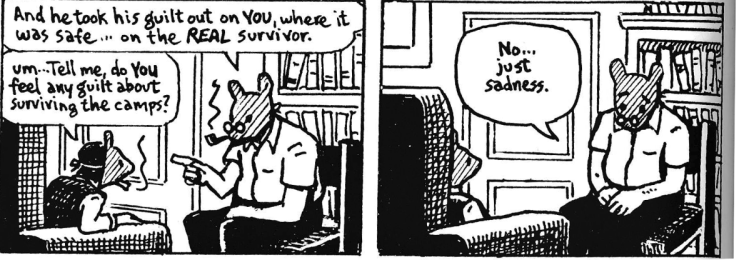





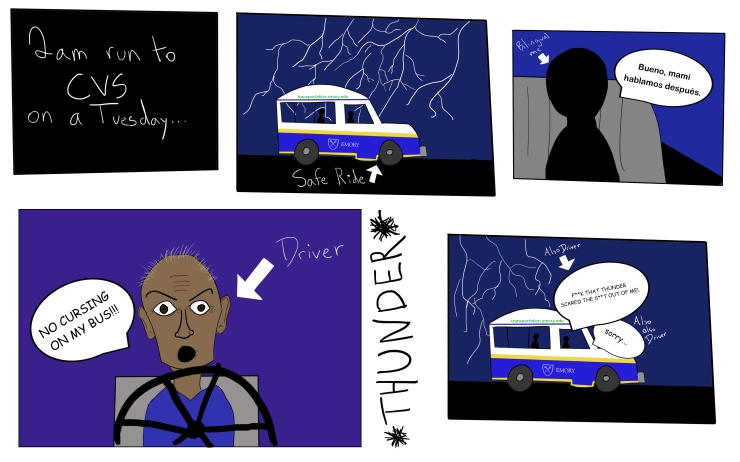
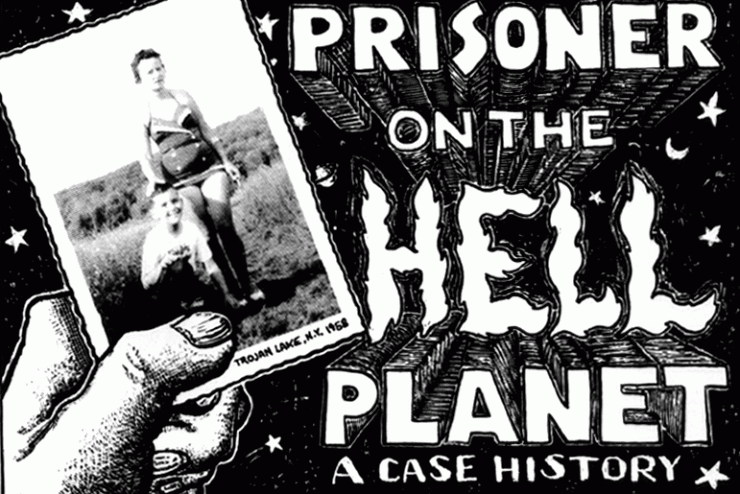 Tracing Maus
Tracing Maus